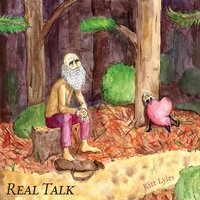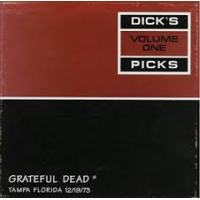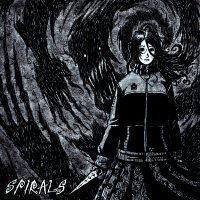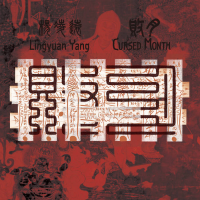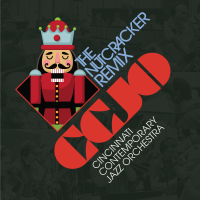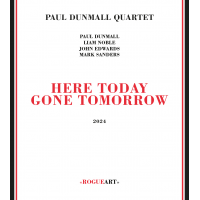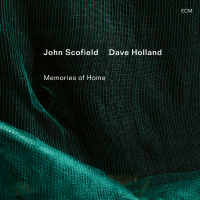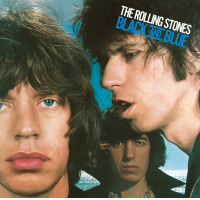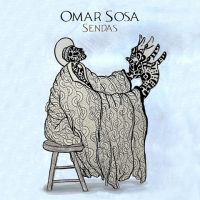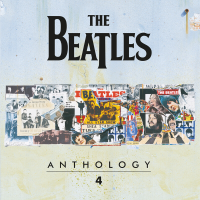Home » Jazz Articles » Extended Analysis » Ali Farka Toure: Ali Farka Toure with Ry Cooder: Talking Timbuktu
Ali Farka Toure: Ali Farka Toure with Ry Cooder: Talking Timbuktu
The popularity of this movement and music can easily be pinpointed to the music of the great Malian artist Ali Farka Toure, a towering musical figure and cultural icon. It was him who singlehandedly introduced the world to this music and its cultures behind. Toure's music was the finest example of desert blues that was unconcerned with boundaries. For years before the world came to know his music in the '80s, he merged the sounds and the rhythms of his native Mali with the sounds of the blues which inevitably drew comparisons with another great artist, the blues legend John Lee Hooker. At the time, his music was wide spreading across Africa when cassettes were the chosen medium for the desert and were used as main distribution channels as much as these days cell phone memory cards are used in West Africa for distributing music. And it was inevitable for him to meet the ever curious guitar adventurer and producer Ry Cooder. That was the moment when the desert blues got its worldwide exposure. Cooder has carved a reputation of delving deep and exploring the vast legacies of American musical legacies, most notably the rustic strains of the blues. That a guitarist of reputation and history such as Cooder's chose to play with Toure is not surprising. After all, Africa is the spiritual homeland of the blues.
Recorded over a period of three days, Talking Timbuktu is full of sizzling examples that will surely curl the toes and will warm the hearts of guitar fanatics. On these 11 tracks, there is a kind of interplay and communication between these two artists that is rare in any kind of music. Both artists are immediately recognizable musicians on that most overplayed of instruments, but to their advantage both of them are also bound by their obvious empathy. There is some serious mutual respect at work on this historic meeting evident right from the start with the opening "Bondo." The song's melodies swirl with emotion bolstered by call and response vocals that all together conjure so much: the streams of river Niger, the vastness of a desert sky and the force of a desert wind. Apart from the electric guitar, Toure plays banjo here, and interestingly, Cooder plays and complements him with a Cümbüş, a Turkish fretless variant of a banjo (the word Cümbüş is also a synonym for chaos) on this beautiful opener.
The follow-up track "Soukora" just shows how excellent Toure is at balancing feels and flow. It features a very simple yet very effective and memorable line that go straight to the heart. Not only that, it shows a remarkable musical empathy and thoughtlessness by Cooder who plays mandoguitar in the background. Cooder's role on this record is more in the line to strengthen Toure's vision (As Toure is the author of all the tracks but one) and to better the music by subtly adding his imprint rather than to impose himself into the limelight. Joining him on this endeavor are three legendary musicians, drummer Jim Keltner, bassist extraordinaire John Patitucci, and blues guitarist Clarence 'Gatemouth' Brown. By no means this is a corporate takeover as this group of people have a perfect understanding that its role to augment Toure's vision rather than to adulterate it.
Toure has played with outsiders before, most notably guitarist Taj Mahal on The Source. (World Circuit, 1993) In a sense, inviting foreigners into these songs is a sign of confidence that Toure has in the integrity of his music. Nevertheless, this record's soundworld is also shaped by geography. Ali was known to sing in a number of West African languages—apart from his own Sonrai, he sang in languages such as Songhai, Peul, Tamasheck, Bambara and others. As a country, Mali is a meeting point of several disparate cultures and Toure's music reflected that. This is communal music and it knows no boundaries.
"Gomni" is based on layers of delicate percussion and Cooder's guitar can be heard adding more layers with his indelible slide. It's a typical modal track and with his embellishments, he creates a subtle but wider spectrum of colors and textures. "Sega" is a short instrumental with the fiddle-like sounding n'jarka taking the lead. "Lasidan" is the most playful track here. The pace is fast-slowness with percussion layering up gradually with handclaps, congas and the calabash. It's truly eclectic without being too mannered, and it's virtuosic without showing off. "Amandrai "and "Au Du" are the places where the Delta and the desert blues truly meet. These are lengthy, slow-paced and spontaneous blues songs where Cooder and Toure trade off licks. Both of these tracks display the pair's keen melodic sensibilities and distinct styles of playing. Functioning as a veritable master class in multicultural collaboration, both Toure and Cooder are at the top of their game here, each other placing their inimitable stamps on this iconic music.
What is evident on this record, first and foremost, is the joy of playing and joy of interacting musically. On the other hand, by its genesis and mood, it is the sound of a journey undertaken. This journey takes one's head from the rural places of Mali down to the Delta juke joints and backward. For the most part, on this record, it sounds like these performances were captured live in the studio with minimal overdubbing and editing. Most of the time the songs have that improvised feel of a conversation and a sense that a moment was captured that we are lucky to have.
Mali's gifts to the world of music are lavish and legendary, and this record is the one that opened the doors for the world to its vast riches. The vinyl reissue of Talking Timbuktu allows listeners to experience the brilliance of these two iconic musicians where the superb production captures all the subtle nuances of each performer's phrasings and grasp of the songs. There's a timeless quality to it. It is a genre defining recording that was not only Grammy awarded but for a long time it was the best-selling world music record of all time. It also stands as one of the most important documents of modern African music. Talking Timbuktu represents a high-water mark in the careers of both of these remarkable artists. There is magic to the sounds of the desert and Talking Timbuktu simply captures that magic with an amazing grace.
Track Listing
Bonde; Soukora; Gomni; Sega; Amandrai; Lasidan; Keito; Banga; Ai Du; Diaraby.
Personnel
Ali Farka Toure
guitarAli Farka Toure: vocals, electric and acoustic guitars, six string banjo, njarka, percussion; Ry Cooder: electric and acoustic guitars, cumbus, mbira, tamboura, mandolin, bass, marimba; Hamma Sankare calabash, chorus vocals; Oumar Toure: congas, chorus vocals; John Patitucci: bass; Jim Keltner: drums Clarence 'Gatemouth' Brown: electric guitar, viola.
Album information
Title: Ali Farka Toure with Ry Cooder: Talking Timbuktu | Year Released: 2016 | Record Label: World Circuit
Tags
PREVIOUS / NEXT
Support All About Jazz
 All About Jazz has been a pillar of jazz since 1995, championing it as an art form and, more importantly, supporting the musicians who make it. Our enduring commitment has made "AAJ" one of the most culturally important websites of its kind, read by hundreds of thousands of fans, musicians and industry figures every month.
All About Jazz has been a pillar of jazz since 1995, championing it as an art form and, more importantly, supporting the musicians who make it. Our enduring commitment has made "AAJ" one of the most culturally important websites of its kind, read by hundreds of thousands of fans, musicians and industry figures every month.




